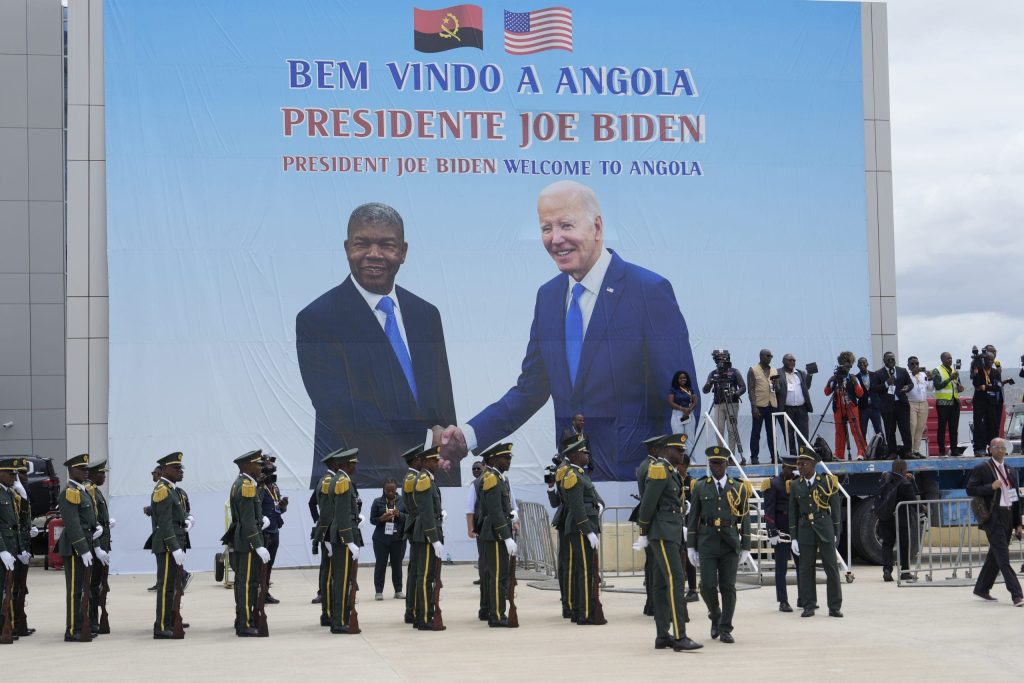President Biden’s inaugural trip to Africa as president was plagued by a series of unfortunate events. Initially scheduled for 2023, the trip was postponed twice due to conflicts in the Middle East and devastating hurricanes in the southern United States. When it finally occurred, torrential rain and flooding in Luanda, Angola, nearly derailed Biden’s visit to the National Slavery Museum, a poignant site symbolizing a dark chapter in history connecting Angola and the United States. The backdrop of this trip was further complicated by a flurry of domestic and international news, including the controversial pardon of his son Hunter, a high-profile murder in New York, political upheaval among key U.S. allies, and the ongoing drama surrounding the incoming Trump administration’s cabinet selections.
Despite these challenges, Biden persevered, delivering a speech near the museum, acknowledging the painful legacy of the transatlantic slave trade and emphasizing the shared responsibility to confront this history. While acknowledging the past, the president’s primary focus was on the future, particularly Africa’s burgeoning potential. With Africa projected to become the world’s most populous continent by 2050, Biden underscored the interconnectedness of global success and Africa’s prosperity, reaffirming the United States’ commitment to the continent’s development. He announced a significant $1 billion humanitarian aid package to address the pressing needs of those displaced by drought and extreme weather events across Africa, demonstrating a tangible commitment to immediate challenges.
A key component of Biden’s visit was the strengthening of bilateral relations with Angola. During a meeting with Angolan President João Lourenco, Biden highlighted the strategic importance of the Lobito Corridor, a $4 billion U.S.-backed rail and infrastructure project designed to facilitate the transport of critical minerals, agricultural products, and industrial goods within the region, connecting Angola, the Democratic Republic of Congo, and Zambia. This initiative, emphasizing economic development and regional integration, aims to unlock the vast potential of these nations. The administration viewed this project not just as an investment in Angola but as a catalyst for broader regional growth.
However, this initiative was met with skepticism, with critics labeling it a belated attempt to compete with China’s long-standing influence in Africa, marked by extensive infrastructure projects and investments. The White House countered this criticism, arguing that the focus was on enabling Angola and its neighbors to accelerate their development and become more competitive in global markets, rather than solely on countering Chinese influence. While the visit included discussions on existing military aid to Angola, there was no explicit mention of expanding the U.S. military presence, despite speculation about the possibility of establishing a U.S. base to counter Russia’s growing influence on the continent.
Looming over the entire visit was the impending transition of power back to President-elect Trump, whose previous term in office was marked by a lack of engagement with Africa and even disparaging remarks about some African nations. This raised questions about the continuity of Biden’s Africa policy under the new administration. While the Angolan president expressed willingness to work with any U.S. president, uncertainty remained about the incoming administration’s approach to Africa. Some analysts, including former Trump administration officials, suggested that certain projects, particularly those perceived as strategically valuable in countering China, might survive the transition, although subject to rigorous scrutiny and evaluation of their effectiveness.
On the final day of his trip, Biden visited the Lobito rail hub, the central point of the ambitious infrastructure project. During a roundtable discussion with regional leaders, Biden, a self-proclaimed rail enthusiast, was observed with his eyes closed, seemingly dozing off, reminiscent of his decades commuting by train as a senator. Despite this moment, the overall assessment of Biden’s “global finale” in Angola was generally positive. The true measure of success, however, will lie in the long-term impact of these initiatives, particularly whether the benefits extend beyond Angola’s elite to the broader population, especially the youth, who yearn for improved living conditions and opportunities.
The trip, though fraught with challenges and overshadowed by external events, generated a sense of hope among many Angolans, who viewed the visit itself as a positive sign of engagement. The long-term success of Biden’s initiatives will depend on the incoming administration’s policies and the extent to which these projects translate into tangible improvements in the lives of ordinary Angolans. The question remains whether this visit will be a symbolic gesture or the beginning of a sustained and impactful U.S. commitment to Africa’s future.










